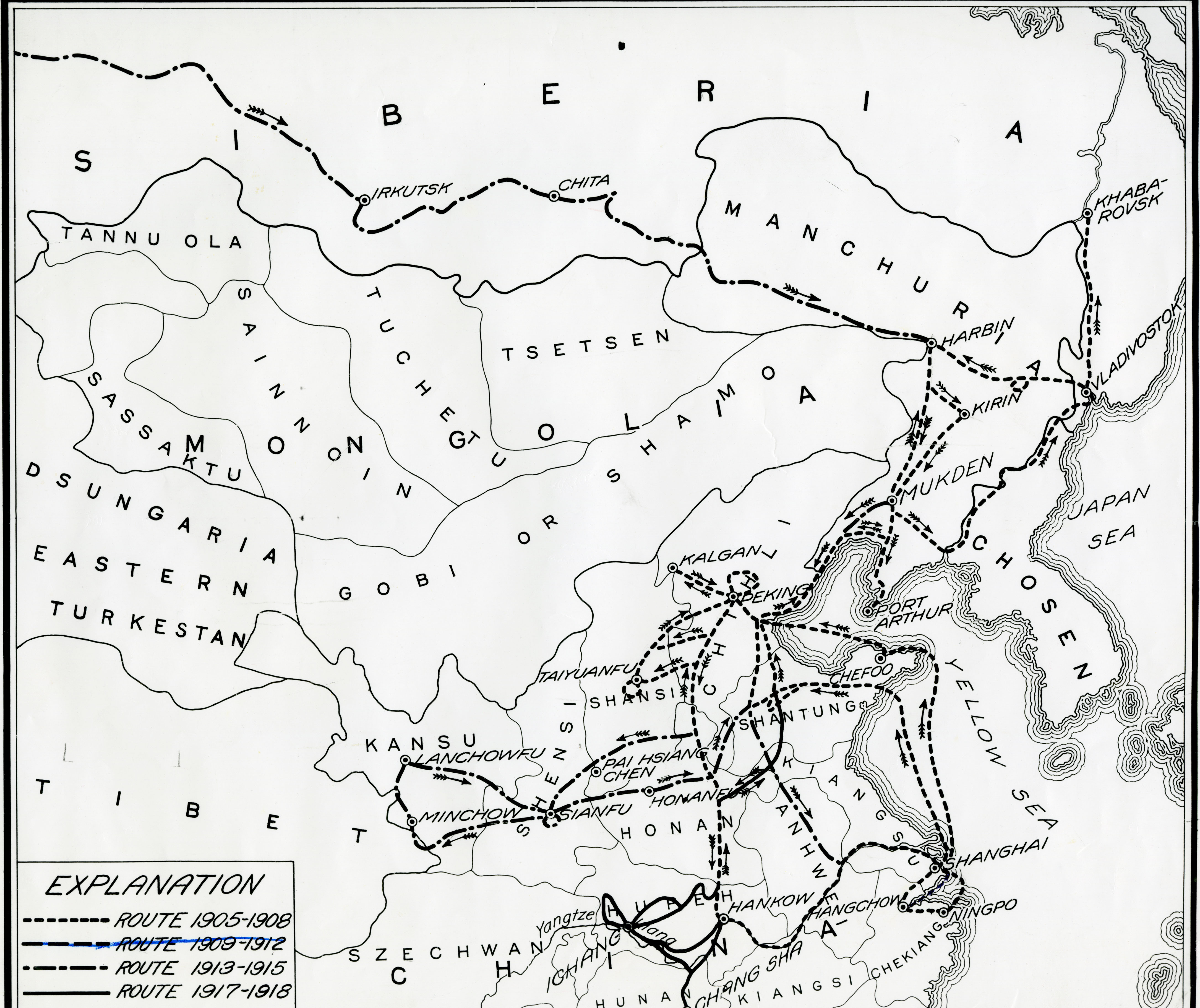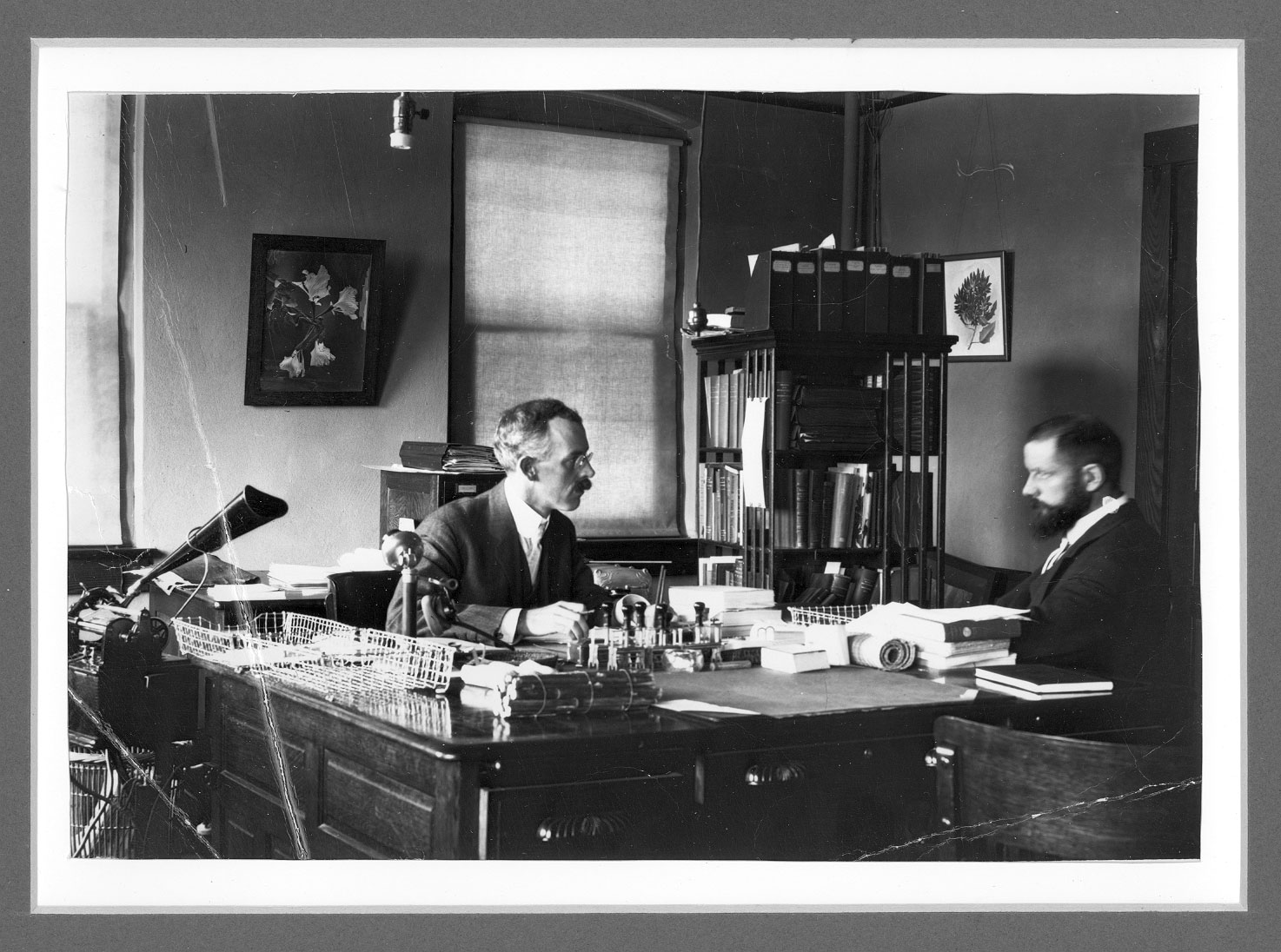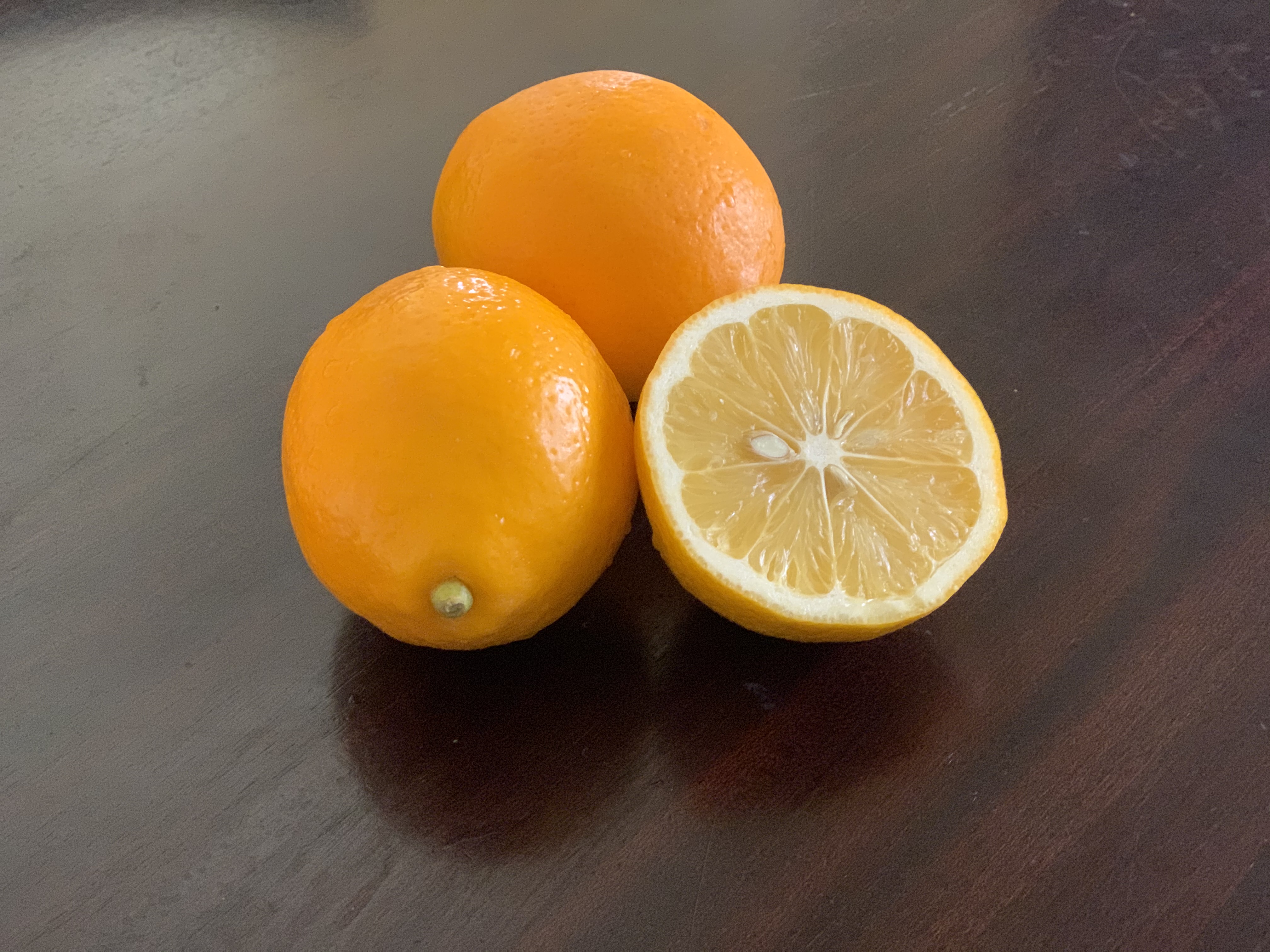The barriers of danger that agricultural explorers faced were present all around. War, disease, weather, wild animals, hostility towards foreigners, and dangerous travel threatened anyone brave enough to be an Agricultural Explorer.
Header: (Pomological Watercolor Collection)
The Dangers of Exploring
Frank Meyer in China
In much of China the only way to travel was to walk. Travel was not the only barrier Meyer faced. “Tigers, panthers, bears, and wolves lurked nearby, but Meyer said he was more afraid of humans than wild animals. He usually carried with him seven sacks filled with currency: Mexican, Hong Kong, and Hupeh dollars, silver and copper coins, and lump silver. (The last he spent by slicing off the amount he needed with a file.) Meyer was a tempting target. ‘The danger of robbers is greater,’ he wrote. ‘I carry a revolver and knife or keep a weapon under my pillow.’“
(Harris, Fruits of Eden, 130)
Meyer's preparedness enabled him to survive the most dangerous places for foreigners. His special skillset allowed him to break previously insurmountable barriers and successfully introduce valuable crops, such as the Meyer lemon, to America.
“In February 1906, six months into Meyer’s first expedition, he faced a more serious situation. Early in the month he heard a rumor that all foreigners in China would be massacred on February 25. It didn’t happen, but three days later thugs in Hankow mugged him while he was returning to his hotel after dinner. Meyer’s attackers punched him in the back while bystanders hooted and sneered instead of rescuing him. Still, he handled the incident gracefully. ‘I took this howling for an ovation, and took my hat off and bowed in all directions and smiled like a president on his inauguration trip,’ Meyer told friends. ‘These little incidents add zest to travel.’”
(Harris, Fruits of Eden, 127)
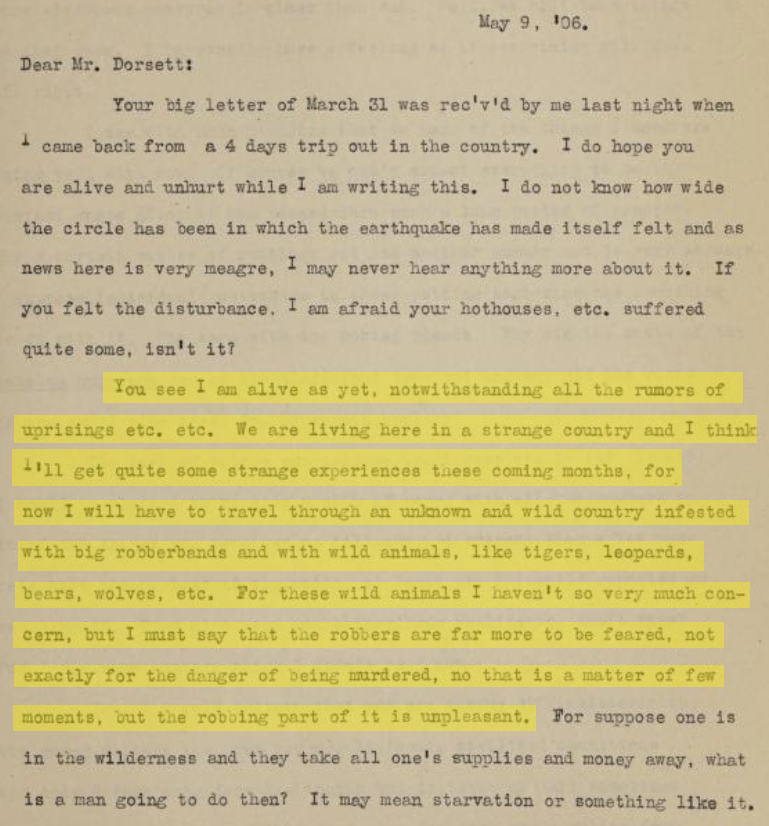
Meyer describing the dangers in China (South China Explorations)
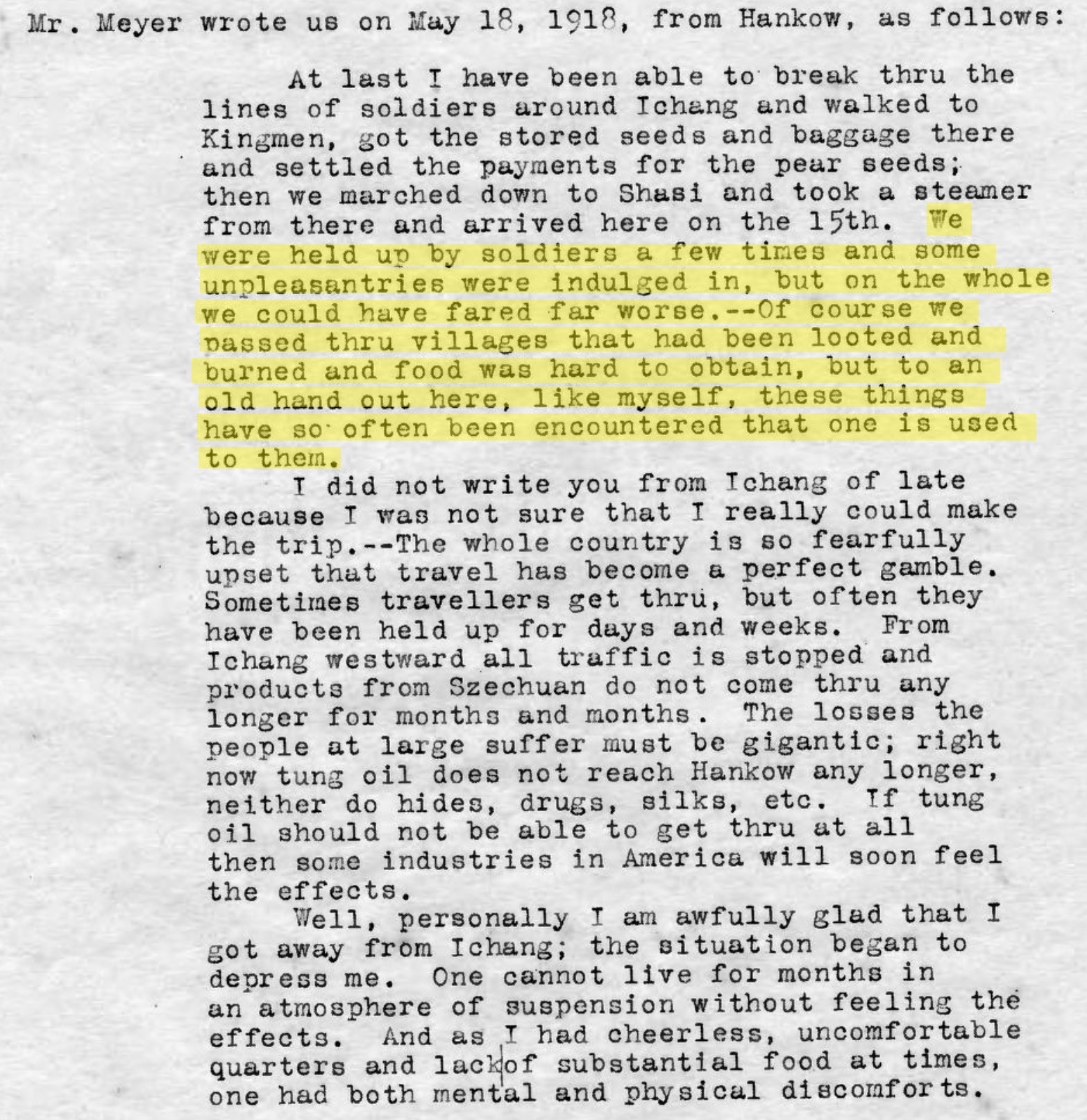
Meyer's letter to the Section of Seed and Plant Introduction (South China Explorations)
Disease
In faraway places, Agricultural Explorers were without access to modern healthcare. David Fairchild and his explorers often fell victim to diseases like typhoid.
“When the manager of the hotel realized that there was a case of typhoid in the house, he insisted that I be moved at once. The doctor and Mr. Lathrop insisted that I must not be moved, and guaranteed that every precaution would be taken to quarantine the wing of the hotel in which I was staying. Mr. Lathrop had seen the little hospital to which I would have to go, and was far from satisfied with it. When the manager persisted, Mr. Lathrop produced his revolver and laid it on his bureau, announcing that if they attempted to move me, he would shoot. Mr. Lathrop then sent an urgent telegram to the manager of the hotel in Kandy, of which our hotel was an annex, and he came up and settled the affair.”
(Fairchild, The World As Garden, 93)
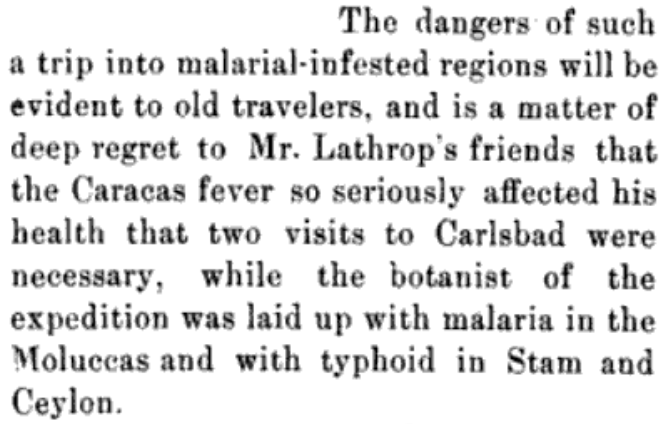
Dangers of disease while traveling. (Indianapolis Journal)
"India, like most places outside of America and Europe in 1901, was moored in disease. Cholera and bubonic plague seemed to feast on the squalor of human density, where houses were built atop other houses with little circulation of air—'an insanitary labyrinth,' a British doctor called it. Fairchild's visions of his earlier battle with typhoid likely contributed to his not wanting to stay in Bombay long . . . . Fairchild knew, however, that disease kept people away. In places where it lurked was also the possibility of plants few Westerners had seen before."
(Stone, The Food Explorer, 182)

